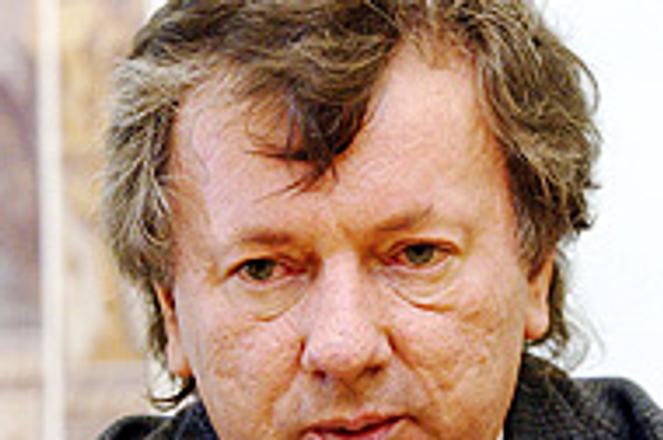NEW director, Lapšanský.photo: SME - Miroslava Cibulková
THE NEWLY assigned general director of the Slovak Philharmonic, Marián Lapšanský, would like to bring the recently resigned Jiří Bělohlávek back to the institution as the chief conductor.
"So far, I have not discussed the issue with Bělohlávek, but I will try to convince him to re-consider his decision of leaving the philharmonic," Lapšanský said on June 14, 2004.
Bělohlávek, a world-renowned Czech conductor, resigned from the post of designated artistic director on May 31, 2004, accusing the culture minister of not fulfilling promises to support his concept of the philharmonic's development. The act triggered criticism of the philharmonic's management, resulting in the recall of the institution's general director, Jozef Tkáčik, and consequently naming Lapšanský to that post.
"I am not well acquainted with the events that took place within the Slovak Philharmonic, and I don't know the reasons why Bělohlávek or Tkáčik left the philharmonic," said Lapšanský.
He added that he did not know anyone who better understands the issues of the philharmonic, including the planned reconstruction of the building, than Tkáčik. Hence, the ex-director was asked to stay and oversee the renovation project.
A renowned pianist and pedagogue, Lapšanský is now faced with the task of preparing the tender for a new general director in six months. He himself is considering the post, which would require that he give up his musical and pedagogic activities. And since Bělohlávek was supposed to become the philharmonic's chief conductor in 2005, Lapšanský also has to select a new candidate for that post: a task which he considers his top priority at the moment.
So far, the only known candidate for chief conductor is Bělohlávek, who currently has projects prepared for the next philharmonic concert season, but from which he has backed out of all but one. Upon his return from Australia, expected in the beginning of July, Lapšanský plans to meet and negotiate a new proposal with Bělohlávek and also to conduct the planned concerts.
"I suspect it may take three or four years for Bělohlávek to consider accepting the post at the philharmonic," Lapšanský said.
If the institution fails to arrive upon an agreement with Bělohlávek, it has prepared alternative solutions for the new, 56th concert season, which begins in October. The artistic management did not, however, specify any names of the potential artists, nor any concrete plans for the programme. The exact programme, as well as who will be the new chief conductor, will not be known until October.
Musicians see Lapšanský as a new hope for the leading musical institution. As a renowned concert artist, Lapšanský also has the power to attract foreign musicians. Changes in the managerial structure of the institution, they say, were necessary, and the current proceedings are a positive indication that the matter is finally being resolved at its root.


